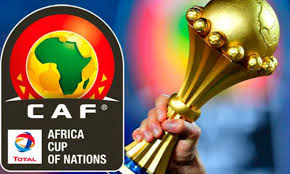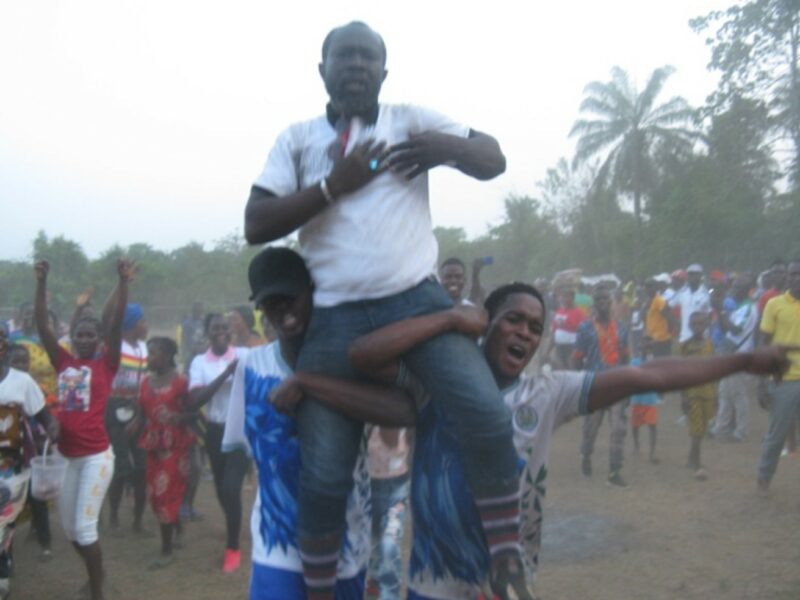World Cup 2018 – How England Won and Lost the Bid
The fallout from England’s spectacular and humiliating defeat or failure to land the 2018 World Cup bid has left many, especially the English press hyperventilating all the way to Santa Claus this Christmas. With only one vote, that is not counting the obvious vote from Geoff Thompson, who is incidentally a figure head of the English Foot ball Association, this drama of what passed for an election on Thursday, has left room for a lot of ramifications. (Photo: Abdulai Mansaray)
The press, arm-chair pundits and fans have swamped the airwaves with all manner of reasons for this dismal failure. Excuses have not been in short supply. As for the conspiracy theorists, it’s been a field day. Russia won the bid, and with Russia frequently mentioned as being in bed with mafia bosses, it is not surprising that FIFA has been labelled as a mafia organisation; or at least influenced by the mafia. Their words not mine. Although it is difficult to pin point the causes and reasons for England’s failure to welcome the world to a month of football fiesta, the writings were on the wall, long before a single ballot was cast.
A lot of finger pointing has been the currency since the debacle, but few fingers have been pointed at the England party itself. The last 72 hours to voting day saw frantic efforts by the English delegate vying to garner votes. The importance of playing host for the World Cup cannot be over estimated. It was therefore not surprising that it took a collection of political, celebritorial and even royal muscle in the run up to the votes. England paraded the Prime Minister to rub shoulders with the powers that be, in the corridors of FIFA. With David Beckham, Prime Minister Cameron and Prince William, all raking up air miles to put the England bid on a safe footing, the outcome was if anything humiliating.
In comparison, Russia the winning bidder left it to the bid team to carry out what it was charged to do in the first place; sell Russia as a viable country that will stage a successful tournament. When the Russian hierarchy decided to stay home from the process, conspiracy theorists concocted another serving that Vladimir Putin already knew the outcome, hence did not need to waste air miles to do any last minute lobbying. You can be forgiven to think that Putin’s absence may have been borne of his confidence in his country’s bid. On the other hand, you would be tempted to ask that, if England was so sure of what was put in front of the FIFA body, why did it need political and royal accent. No one is discounting the influence of politics in the decision making, but any lobbying from the political angle could have been better dealt with in the background; rather than have The Prime Minister holding court with William and Beckham in the full glare of the world media.
I am not privy to the ins and outs of the bids but looking from outside; one could make some plausible comparisons. Football is a global pastime, though expensive in today’s terms. But under Sepp Blatter, a seemingly democratic approach has been taken to ensure that it is no longer the play thing for only the rich and powerful nations. In years gone by, it would have been unthinkable that an African Country would stage the World Cup this century. When South Africa was given the honour to play host to world this year, the English Press went to town, in not only condemning the idea, but also became doomsday merchants overnight. The tournament was pronounced dead even before it was born. If you did not know about South Africa then, the press gave free lessons on South Africa, ranging from its climate, crime, and its history (with only a one-line mention of apartheid), right down to its inability to stage a world event of such magnitude. The British press even plastered pictures of construction work that was ongoing by the hotel that the England team was to occupy during the tournament. Effectively, no stone was left unturned to put a dampener on the event, even before a ball was kicked. The crime rate in South Africa was projected in such a way that made people like Pablo Escobar look like saints.
We all knew how well the tournament went and England fans did not take centre stage this time, with the usual hooliganism. Instead, the tournament was conducted with a carnival atmosphere; the way it should be, “the beautiful game”. When all else failed, the press turned on the Vuvuzelas, paying maximum disregard for its cultural importance within the context of affairs. The Vuvuzelas were condemned as a major nuisance. Following the team’s shambolic exit from the world cup, Premier league clubs queued up to pass blanket bans on Vuvuzelas to premiership matches.
The set up of the football machinery in England has a celestial look to it, when you consider that it is a trinity that comprises the FA, The Premier League and The Football League. These organisations are all headed by different personalities and vested interests; unity in diversity. It is therefore plausible to see how difficult it can be that these can work together for the common good, when all three have different groups to represent and protect. In the last five years, the FA has been headed by three different chairmen, with none lasting beyond the 18-month lifespan. The most recent was Lord Triesman, who in the heat of the bidding process was caught making allegations on tape about collusions among fellow bidding countries. His subsequent resignation was another blow to the bid. Following the loss for the right to host the 2018 world, the acting, I mean acting FA Chief, Roger Burden decided to throw his toys out of the pram. He decided to quit and not apply for the permanent post as FA chief. With all these rapid changes at the helm, FIFA could be forgiven to think that though a good bid, The English FA was a rudderless ship that was incapable of putting its own house in order.
It is an open secret that the press in England have a penchant for pressing the self destruct button. Time and time again, we have come to be treated to stories of saucy persuasions surrounding the England team whenever a major tournament was about to be played. From the dentist’s chair of Euro 96, right to the Beckham–Louise affair and Sven Erickson-Ulrika Johnson affair of 2002. The public has always been treated to a precursor of sordid stories to mark the opening of every major tournament that England has been involved in recently. Sadly, these stories have had nothing to do with football matters.
England scored the ultimate own goal when The Sunday Times Newspaper made allegations about two FIFA executives who were reportedly ready to sell votes. The episode was caught on camera and FIFA took steps to suspend the culprits. Although FIFA seemed to give a rapid response to this sordid affair, the outcome seemed light weight. If found guilty, these two should never be allowed near a football match. The BBC Panorama Programme revealed further allegations of bribery and corruption by FIFA officials. This is an acceptable state of affairs. I am all for press freedom and the right to report without fear or favour, but the timing of the programme did not in any way endear the bid to those that had to determine the destination of the 2018 world cup. Hearsay has it that the BBC had the story long ago. If that is so, BBC’s decision to reveal it just three days before the vote rids it of any journalistic integrity.
It is sad that this year’s bidding process has been fraught with bribery and corruption, which in itself is not good for the integrity of the beautiful game. Nevertheless, The English FA has not been whiter than white. Earlier on, it was criticised for giving designer bags to FIFA officials during a visit to England. The England team played a meaningless friendly match with Trinidad and Tobago, allegedly to bag Jack Warner’s vote.
In spite of the conspiracy theorists, the allegations and under-hand tactics that may or may not have taken place, I am inclined to think that Russia, together with its potential, may have had the bid, in keeping with FIFA’s principle to “discover new territories for sport”, just like South Africa did this year. If for nothing else, FIFA has my vote. Like Roy Keane said, “England lost the bid, get over it. Nobody died.”
By Abdulai Mansaray ( Zoztik Mayanga)
Stay with Sierra Express Media, for your trusted place in news!
© 2010, https:. All rights reserved.






